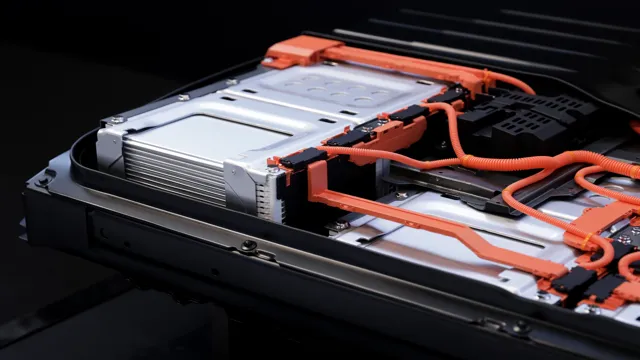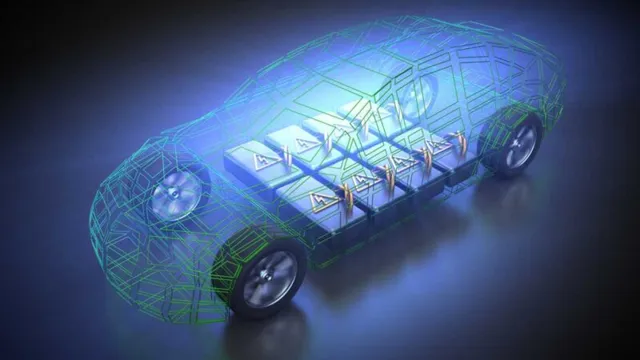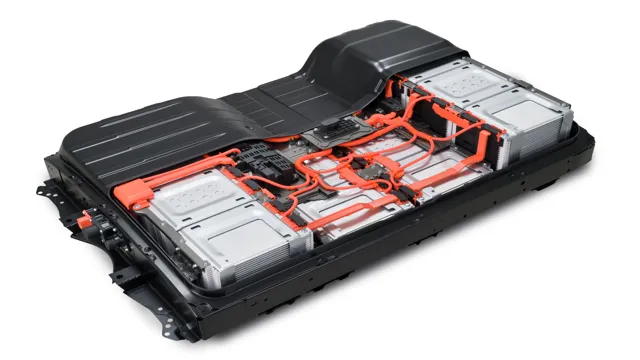Unveiling the Truth: The Real Cost of Batteries in Electric Cars
Are you thinking of switching to an electric car but wondering about the cost of electric car batteries? You’re not alone! The cost of electric car batteries has been a hot topic of discussion, and rightfully so. A few years ago, electric vehicles had a reputation for being expensive and unattainable for the average person. However, with more automakers entering the electric car market, prices have begun to fall, and with government incentives and tax breaks, electric cars are becoming more affordable.
But what about the cost of the batteries themselves? Electric car batteries are the most expensive component of an electric vehicle, accounting for almost half of the total cost of production. However, advancements in battery technology and increasing demand for electric cars have led to a significant reduction in battery costs over the years. In fact, the cost of electric vehicle batteries has decreased by 87% in the last decade.
It’s essential to note that the cost of electric car batteries ultimately depends on the type of electric car and its battery capacity. For example, a Tesla Model S battery can cost up to $20,000, while a Nissan Leaf battery costs around $5,500. However, with advancements in battery technology, battery prices are expected to continue to drop.
Overall, the cost of electric car batteries is decreasing, making electric cars more affordable for the average person. As automakers continue to invest in battery technology, we can expect to see further reductions in cost, making EVs even more accessible to everyone.
Average Cost per kWh of Battery
When it comes to the cost of batteries in electric cars, one of the critical factors to consider is the average cost per kWh. This metric can vary widely depending on the type of battery, the vehicle brand, and the market demand. In general, the cost of batteries has been steadily decreasing over the years, making electric cars more accessible to the masses.
According to recent reports, the average cost of a lithium-ion battery pack was around $137 per kWh in 2020, which was a significant drop compared to the $1,100 per kWh in 20 This trend is expected to continue as more manufacturers adopt new technologies and increase production capacity. The decreasing cost of batteries is also good news for the environment, as it makes it more feasible to store renewable energy and reduce dependence on fossil fuels.
As the demand for electric cars grows, we can expect to see even more advancements in battery technology, resulting in further cost reductions and improved performance.
Global prices in 2020
In 2020, the global average cost per kWh of battery decreased significantly, making battery storage systems more affordable and accessible for households and businesses. According to a report by BloombergNEF, the average cost per kWh fell by 13% to $137, making it the lowest recorded level so far. This can be attributed to the increase in demand for electric vehicles and the significant growth in renewable energy sources such as wind and solar power.
The increase in demand for lithium-ion batteries has also led to economies of scale, making production cheaper and driving down the average cost. With the decreasing cost of batteries, we can expect to see more people adopting renewable energy sources and reducing their carbon footprint, which would have a positive impact on the environment. As more and more countries accelerate their transition to clean energy, the decreasing cost of batteries is a promising sign that we are on the right track to a more sustainable future.

Trends and projections
The average cost per kWh of battery is a critical factor in determining the affordability and feasibility of battery storage for renewable energy systems. According to recent trends and projections, this cost is expected to decline steadily in the coming years due to advancements in technology and economies of scale in production. Several factors contribute to this trend, including improvements in lithium-ion battery chemistry, increased competition among manufacturers, and investment in research and development.
As a result, we can expect to see continued growth in the adoption of battery storage systems for both residential and commercial applications. By harnessing the power of renewable energy and storing it for later use, we can reduce our dependence on fossil fuels and move towards a more sustainable future. However, it is essential to keep in mind that the exact cost per kWh of battery will depend on a variety of factors, including the size of the system and the specific technology used.
Factors Influencing Battery Costs
The cost of batteries in electric cars can be influenced by various factors. Firstly, the cost of materials used to make batteries can impact prices. The prices of materials like cobalt, lithium, and nickel can fluctuate due to factors like supply, demand, and geopolitical issues.
Secondly, scale and production efficiency are important as economies of scale kick in for larger production volumes, leading to cost reductions. Thirdly, technological advancements and research and development can help find new and cheaper ways to manufacture batteries, reducing costs. Finally, subsidy policies enacted by governments can lower the cost of electric vehicle batteries.
For instance, government subsidies for battery production in China has allowed them to produce batteries at lower costs. Therefore, these factors collectively impact the cost of batteries in electric cars.
R&D expenses
R&D expenses are a significant factor impacting battery costs. Research and development help companies in creating advanced technologies, improving product performance and reducing manufacturing costs. R&D activities for batteries focus on developing new materials for anodes and cathodes, improving electrolytes, and enhancing energy storage capacity.
However, these activities can increase the cost of production and impact overall battery costs. Additionally, the cost of implementing safety features for batteries can be high. But, investing in R&D activities can potentially lead to advancements in battery technology and cost reductions in the long run.
So, it’s important for companies to find a balance between R&D expenses and battery production costs to ensure their products are competitive in the market.
Raw material prices
Raw material prices are one of the core factors influencing the cost of batteries. The cost of battery production substantially depends on a range of materials, including nickel, copper, cobalt, and lithium. With the increasing demand for batteries, the price of these raw materials is rapidly increasing.
For instance, the price of cobalt more than tripled between 2016 and 2018, while the price of lithium more than doubled during the same period. The unpredictable fluctuations in the prices of these raw materials have a significant impact on the overall cost of production. Besides, the availability and quality of these raw materials also affect the pricing of batteries.
Trends and innovations in battery technology and materials science are critical determinants in mitigating the cost of batteries. At present, researchers and manufacturers are exploring sustainable alternatives such as sodium-ion batteries and magnesium-ion batteries to counteract the rising costs of raw materials.
Economies of scale
Economies of scale When it comes to batteries, the cost is an essential factor that can impact the market’s growth and adoption rates. A wide array of factors such as raw materials, production processes, and economies of scale influence battery costs. For instance, the cost of producing batteries on a small scale is much higher than producing them on a large scale.
Production on a larger scale drives down the costs of manufacturing because there are greater economies of scale, which results in lower costs per unit. Additionally, the other critical factor that influences battery cost is the type of material used. Materials such as lithium-ion tend to be more expensive, while materials such as lead-acid tend to be cheaper.
Ultimately, battery costs are a significant factor that determines the pace of adaptation of electric vehicles and renewable energy sources. As technology advances, battery costs are projected to drop, leading to further adoption and utilization of renewable energy sources.
The Future of Battery Prices
The cost of batteries in electric cars has been a significant factor in the adoption of this technology. However, the future of battery prices seems promising. As technology evolves, and production processes become more efficient, we are starting to see a substantial drop in the price of batteries.
In fact, some experts predict that these prices could drop as much as 50% in the next five years. This reduction is primarily due to the increasing demand for electric vehicles, which is driving companies to invest more in research and development to improve battery capabilities and streamline production. As this trend continues, we can expect to see more affordable electric cars with longer ranges that are accessible to a broader range of consumers.
Overall, the future of battery prices is looking brighter, and this is good news for the environment and the future of sustainable transportation.
Industry experts predictions
The future of battery prices is a topic that’s on everyone’s mind, especially with the rise of electric vehicles. According to industry experts, battery prices are expected to continue to decrease, making electric vehicles more affordable and accessible to the public. This is largely due to advancements in technology, economies of scale, and increased competition in the market.
Tesla, for example, is working on creating a more efficient and cost-effective battery for their vehicles, which will likely bring down the cost of other electric vehicles as well. Additionally, more and more governments around the world are providing incentives for individuals to switch to electric vehicles, which will further drive demand and push down prices. Overall, while there may be occasional fluctuations, the trend for battery prices is expected to continue to decrease, making electric vehicles a more viable option for consumers.
New technologies and competition
As the world transitions towards cleaner energy, there is a growing demand for more efficient and cost-effective batteries. With the increasing competition in the market, new technologies are emerging and old ones are improving rapidly. It is expected that the prices of batteries will continue to decrease as these new technologies mature and are mass produced.
The development of solid-state batteries, for instance, is considered to be a game-changer in the industry as they are safer, more stable and have higher energy density than traditional lithium-ion batteries. Additionally, competition from new entrants such as Tesla, which is already producing its own batteries, and startups like QuantumScape and Sila Nanotechnologies, will continue to drive innovation and bring prices down. With the increasing demand for batteries, it is clear that the future of battery prices is on a downward trend, which is great news for consumers and the environment.
Conclusion: Why It Matters for Electric Car Buyers
In conclusion, the cost of batteries in electric cars may be shocking at first sight, but when you consider the long-term savings and the positive impact on the environment, it becomes clear that investing in electric vehicles is worth every penny. After all, in the race towards a sustainable future, every little charge counts!”
FAQs
What is the average cost of batteries in electric cars?
The average cost of batteries in electric cars can vary depending on the model and brand, but generally ranges from $5,000 to $15,000.
How is the cost of batteries in electric cars affecting the overall price of the vehicle?
The cost of batteries in electric cars is a significant factor in the overall price of the vehicle. This is because the battery makes up a large portion of the car’s cost, and as battery technology evolves, the cost can impact the sticker price of the vehicle.
Are there any government incentives or rebates available to help offset the cost of batteries in electric cars?
Yes, many governments around the world offer incentives and rebates for electric vehicles, including those with high battery costs. These incentives can make electric cars more affordable and help offset the cost of the battery.
How long do electric car batteries typically last, and is it cost-effective to replace them?
Electric car batteries can last anywhere from 8-15 years, depending on the model and usage. While replacing the battery can be expensive, it is often more cost-effective than replacing the entire car. Additionally, as battery technology improves, prices are expected to decrease in the future.





